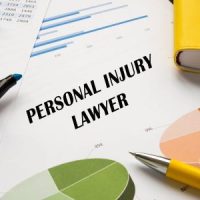There are Different Ways to get the Evidence That You Need

When you start a personal injury case, one thing is certain: In almost every kind of case, at the very start, the Defendant has more evidence about the case than you do. That doesn’t mean you’re going to lose, or that the evidence is bad for your case—it just means that they have the evidence, and you have to get it from them.
For example, if you fall in a store, the store knows how often their floors are cleaned or inspected. They may have the video footage. They may have interviewed witnesses. They may have information about the safety precautions they take or warnings they give to people.
You are just a victim who, at the time of the accident, was understandably worried about your own health and safety.
So how do you get the information you need? How will your injury attorney compel the other side to hand over evidence—evidence that is likely bad for their side of the case?
There are four main ways that your attorney will gather and collect the evidence that you need to prove, and hopefully win, your case.
The first way is through simple written questions. These are called interrogatories. Your attorney will put together a list of questions about the business practices of the Defendant, or the Defendant’s actions (or inactions) at the time of the accident, and the Defendant must answer these questions.
Another way is through written documents, or production of items. Think of things like accident reports. Witness interview and statements. Video surveillance. Cleaning schedules, or other documents that reference a store’s safety records. Text records, to see if a driver was distracted during an accident.
A major way to get information is through deposition. This is a live, question and answer session, where your attorney will question their witnesses, and all the answers will be transcribed (written down by a court reporter).
Your attorney has the right to depose multiple people, and ask them any questions about the accident, or about the safety precautions taken (or not taken) by the Defendant.
Another way your attorney can get evidence is through third parties, not involved in the lawsuit, who may have information. So, for example, imagine a store uses a third party cleaning company, and you want records that show how often the store’s floors were or were not cleaned. Your attorney can compel the third party company to give up those records.
Of course, often answers to all forms of discovery are incomplete or evasive, which means that your attorney will have to go to court to ask a court to make the other side give you a better, more complete, or more accurate answer. But when that happens, the evidence often reveals errors and omissions that caused you to be injured, and which help prove your case.
Questions about proving your case? Call the Knoxville personal injury attorneys at Fox Farley Willis & Burnette, PLLC, for help today.
Sources:
flmd.uscourts.gov/civil-case-flowchart#:~:text=Discovery%20is%20the%20process%20by,inspect%20property%2C%20or%20a%20deposition.
americanbar.org/groups/public_education/resources/law_related_education_network/how_courts_work/discovery/
